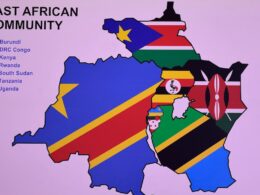NAIROBI,Kenya – Gender-based violence is one of the most widespread and socially tolerated forms of human rights violation among women.
It is rooted in discriminatory social and cultural norms that make women more susceptible to such a vice. It is a graduated form of violence that can occur in both public and private spheres, including in the digital space.
The prevalence of violence against women continues to rise, with global statistics indicating that about 1 in 3 (30 per cent) of women worldwide have been subjected to either physical, sexual or intimate partner violence or non-partner sexual violence in their lifetime.
At the national level, statistics from the Kenya National Demographic Health Survey 2022 indicate that 34 per cent of women in Kenya have experienced physical violence since the age of 15 and that the experience of violence among women increases with age.
Femicide, a form of GBV, is on the rise in Kenya, barely a month from the annual international campaign on the elimination of violence against women and girls.
Reports from the media outlets indicate that between January 1st and 15th, two women aged 24 and 25 were brutally killed in serviced apartments, commonly known as AirBnBs.
The circumstances surrounding the murder of these young women have been linked to intimate partner violence and technology-facilitated gender-based violence (TFGBV).
TFGBV is perpetrated against women in online spaces or through digital media. It can take many forms, including incidents that occur entirely online and offline between parties whose meeting was enabled by technology.
Recruitment, a form of TFGBV, has recently been rising in dating sites in Kenya. It is the use of technology to lure potential victims or to facilitate in-person physical or sexual assault through dating sites and apps.
The rising cases of TFGBV on dating sites are attributed to the creation of a culture of victim shaming and blaming.
It has also been a contributory factor in the rise of violence against women due to the perception that dating sites fuel online prostitution/ sex work. As a result, these victims fail to report such incidences.
For instance, the recent murder of the 24-year-old Starlet Wahu opened the pathways for other victims to come forth and report the incidences of violence meted out to them by the perpetrator, John Matara.
The narrations from the victims paint a picture of the gravity of stigmatization attached to reporting GBV cases. The culture of victims’ silence/stigmatization is also attributed to the criminalization and societal perception of sex work.
Criminalization consistently undermines sex workers’ ability to seek justice for crimes against them, and this should be considered unjust.As a result, it harms their dignity by denying them their right as workers contrary to the provisions on human dignity enshrined in the Maputo Protocol and the Constitution of Kenya 2010.
Moreover, cases have borne proof of the fact that victims of GBV in relation to sex work on online or offline platforms are blamed for their predicament and safety, thus impacting their mental state negatively.
It is very crucial to shift from this harmful trend and treat women with dignity by virtue of them being human beings. The high number of femicides in recent months is a clear indication that we should acclimatize the fight against GBV in a more holistic approach.
Most importantly, create a society where women are safe and free from the threat of violence by raising awareness of the respect for their dignity.
On policy, it is crucial to interrogate the role of legislation in building a survivor-centric approach to GBV and explore the challenges of legislation in holding perpetrators and tech companies accountable for providing safety online.
It is time to break the silence!
The author, Damaris Kemunto, is an Advocate of the High Court and a Programme Officer at ICJ Kenya. This article was first published on Citizen Digital.











